This article was co-authored by David Schechter, MD. Dr. David Schechter is a physician in Culver City, California. With over 25 years of experience as a family and sports medicine physician, Dr. Schechter specializes in mind-body medicine, preventive medicine, and chronic pain. Dr. Schechter received his MD from New York University and is an attending physician at Cedars-Sinai Medical Center. He was named a Top Doctor by Los Angeles Magazine and Men's Health Magazine. He has also written several books, including The MindBody Workbook.
There are 14 references cited in this article, which can be found at the bottom of the page.
This article has been viewed 55,328 times.
Stomach pain can be caused by many different things, from the serious like a kidney stone to the not serious like indigestion. If you are experiencing severe stomach pain or if your stomach pain has lasted for more than two days, then you should call your doctor right away. For stomach pain caused by diet and lifestyle, there are several things that you can do to help cure stomach pain.
Steps
Making Lifestyle Changes
-
1Ask your doctor about taking a daily antacid. If you experience frequent stomach pain or indigestion, talk to your doctor about medications that may help. They may recommend that you take an antacid once a day, which may be available over-the-counter or as a prescription.[1]
- If your symptoms are less frequent, your doctor may advise you to only take the medication as needed.
-
2Wear loose-fitting clothing. Tight clothing may constrict your stomach and lead to stomach pain. If you tend to wear tight fitting clothing, then try switching to loose fitting clothing for a while to see if it helps.[2]Advertisement
-
3Stop smoking. Among its other negative effects, smoking can increase stomach acid and this may cause stomach pain.[3] If you smoke, ask your doctor for help with quitting. There are many smoking cessation medications, tools, and programs that may help you.
-
4Lose weight. Carrying around excess weight can also put pressure on your internal organs and lead to reflux or GERD. If you are overweight or obese, then you may need to lose weight to eliminate this potential cause of stomach pain.[4]
- Keep track of how much you eat every day. To lose weight, it is important to make sure that the number of calories you consume is less than the number of calories you burn. Keeping track of how much you eat in a food diary is the best way to see if you are burning more calories than you are eating each day.
- Get one hour of moderate exercise most days of the week. Losing weight is easier if you incorporate plenty of cardiovascular activity such as brisk walking, biking, or swimming. Find something that works for you and stick with it.
- Avoid fad diets. Losing weight takes time and fad diets that promise that you will lose lots of weight overnight will probably require you to deprive yourself and you may also end up gaining back the weight you lost after the diet is over.
-
5Sleep with your head elevated. Lying in bed can result in stomach acid rising up and this may lead to stomach pain. One way to reduce this factor is to elevate your upper body while you sleep. You can do this by raising up the head of your bed while you sleep or by placing some pillows under your upper body.[5]
- Keep in mind that using extra pillows under your head will not help since this will only cause your head and neck to bend forward. It is important to make sure that your entire upper body is elevated.
-
6Manage stress. Stress is a common cause of stomach pain and other digestive issues as well. To manage stress, make sure that you incorporate some relaxation exercises into your daily routine.
- Practice deep breathing exercises. Taking a few minutes to breathe deeply can also help you to manage stress. Try inhaling slowly through your nose to the count of five, then exhale slowly through your mouth to the count of five. Repeat this deep breath exercise for about 5-10 minutes.
- Listen to soothing music. Music is a great way to change your mood and soothing music can help to reduce stress when it strikes. Try playing some relaxing classical music or nature sounds. You can also just play one of your favorite songs and sing along.
- Learn how to meditate. Meditation is another great way to relax and manage stress. Meditation teaches you to silence your racing thoughts, which is a major cause of stress for some people. Meditation may even help you to be less affected by stress over time.
Changing Your Eating Habits
-
1Identify problem foods. If you experience stomach pain after eating, then the foods that you are eating may be to blame. One way that you can begin to cure stomach pain is to keep track of the foods that you eat and how they make you feel.[6] Over time, you should begin to notice that certain foods cause stomach pain more than others, while some cause no pain at all. Adjust your eating habits to eliminate these causes of stomach pain.
- For example, if you notice that you get stomach pain after eating spaghetti and meatballs with pasta sauce, then that food may be causing your stomach pain.
- To determine if the sauce, pasta, or meatballs are causing your stomach pain, try eliminating one component each day. For example, you can eat just spaghetti and meatballs without sauce the following day and if you do not have stomach pain, then you will know that it was the sauce that caused the pain.
-
2Steer clear of common problem foods. You may also cure your stomach pain by eliminating some of the most common causes of stomach pain from your diet. Common problem foods to avoid include:
- Caffeinated drinks, such as coffee, black tea, and lattes
- Fatty foods, such as French fries, cookies, and pastries
- Carbonated drinks
- Acidic foods, such as pasta sauce and orange juice
- Alcohol
- Pasta
- Full-fat dairy products
-
3Drink plenty of water. Keeping yourself well hydrated is another good way to start curing your stomach pain. Water helps your body digest your food and it also helps to reduce stomach acid. Most adults should drink about eight 8-ounce glasses of water per day.
- Try adding a tablespoon of apple cider vinegar to a cup of water. Apple cider vinegar can help to neutralize stomach acid, which may also help to cure your stomach pain.[7]
-
4Eat more fiber-rich foods. Consuming a high-fiber diet is essential for good health, but it may also help with your stomach pain as well. Fiber keeps food moving through your system, so it may prevent you from becoming constipated.
- Try to eat an apple every day. Apples are a good source of fiber and they also contain pectin, which can help to neutralize acid.
-
5Decrease the amount of food you eat in one sitting. Eating a lot of food at once causes stress on your stomach that may be causing stomach pain for you. To reduce this stress, try eating small frequent meals spaced throughout the day.[8]
- For example, instead of having a big lunch, try breaking your normal lunch into two separate meals. Have one at 12pm and the other at 3pm. You can do the same with your breakfast and dinner as well. Try to eat a small 200 – 300 calorie meal about once every three hours during the day.
-
6Stop eating two to three hours before bedtime. Eating too close to bedtime may be putting pressure on your stomach as you try to sleep. To eliminate this potential cause of stomach pain, stop eating about two to three hours before bedtime.[9]
- If you are used to having a bedtime snack, try having a cup of herbal tea about an hour before bed to help you relax.
-
7Eat slowly. Eating your food in a hurry can put extra pressure on your stomach as well. To eliminate this potential cause of stomach pain, try to take your time when you are eating your meal. Chew slowly and pay close attention to what you are eating.[10]
- Try putting your fork down in between bites or take a sip of water after every few bites.
Using Herbal Remedies
-
1Try aloe vera juice. Aloe vera juice can help to neutralize the acid in your stomach, so you may find it helpful to drink a cup or two of aloe vera juice each day.[11] You can find aloe vera juice in a health food store or a well-stocked grocery store.
- Keep in mind that aloe vera juice has a mild laxative effect, so you may want to start with just half of a cup to see how your body responds to it.
-
2Drink some fennel tea. Fennel can help to reduce stomach acid and settle your stomach, so it might help you to cure your stomach pain.[12] Try drinking two to three cups of fennel tea per day about 20 minutes before you eat.
- To make fennel tea, crush about a teaspoon of fennel seeds and add a cup of boiled water. Steep the seeds in the water for about five minutes and then strain the water.
-
3Sip some chamomile or ginger tea. Chamomile and ginger tea may help to calm your stomach and they also have anti-inflammatory effects.[13] You can buy chamomile and ginger tea in most grocery stores. Try drinking a cup of chamomile or ginger tea after meals to help soothe your stomach and relieve stomach pain.
-
4Take deglycyrrhizinated licorice root (DGL) chewable tablets. DGL tablets may help to control stomach acid. DGL tablets may also provide some relief for stomach pain by increasing mucous production in your stomach. The mucous acts as a soothing coating for your stomach.[14] You can find DGL tablets in a health food store or well-stocked grocery store.
- Make sure that you check with your doctor before taking DGL tablets and follow the manufacturer’s instructions as well.
- A common dosage for DGL tablets is two to three tablets every four to six hours.
-
5Try some slippery elm. Slippery elm can soothe and coat your stomach as well, which may also help to relieve stomach pain.[15] You can take slippery elm as a liquid supplement or as a tablet.
- Check with your doctor before taking slippery elm and follow the manufacturer’s instructions as well.
Getting Medical Help
-
1See a doctor for a diagnosis. If you have been experiencing stomach pain for more than a few days, or if nothing seems to help, then you should call your doctor as soon as possible. Stomach pain can range from mild to severe and it may be caused by a variety of conditions, so it is important to get a diagnosis and proper treatment for your stomach pain. Your doctor may recommend that you have an endoscopy, especially if your pain is recurring. Some of the potential causes of stomach pain include:[16]
- Food poisoning
- Gas
- Ulcers
- Kidney stones
- Gallstones
- Hernia
- Appendicitis
- Flu
- Allergies
- Endometriosis
- Indigestion
- Constipation
-
2Think about the characteristics of your pain. Before your doctor’s appointment, try to think about what your pain feels like, where it is located on your body, how often it occurs, and what else accompanies your pain. Your doctor will need to know these details in order to make a diagnosis.
-
3Watch for red flags. In some situations, you may need to go to an emergency room for immediate treatment. If you have any serious symptoms along with your stomach pain, then you will need to go to an emergency room or call 911 right away. Serious symptoms to watch for include:[17]
- Fever
- Severe pain
- Diarrhea that lasts more than two days
- Constipation that lasts more than two days
- Red, bloody stools or stools that look black and tarry
- Persistent nausea and/or vomiting
- Vomiting up blood or vomit that resembles coffee grounds
- Severe belly tenderness
- Jaundice (eyes and skin that look yellowish)
- Swelling or visible bloating of your abdomen
Expert Q&A
-
QuestionWhy is my stomach hurting?
 David Schechter, MDDr. David Schechter is a physician in Culver City, California. With over 25 years of experience as a family and sports medicine physician, Dr. Schechter specializes in mind-body medicine, preventive medicine, and chronic pain. Dr. Schechter received his MD from New York University and is an attending physician at Cedars-Sinai Medical Center. He was named a Top Doctor by Los Angeles Magazine and Men's Health Magazine. He has also written several books, including The MindBody Workbook.
David Schechter, MDDr. David Schechter is a physician in Culver City, California. With over 25 years of experience as a family and sports medicine physician, Dr. Schechter specializes in mind-body medicine, preventive medicine, and chronic pain. Dr. Schechter received his MD from New York University and is an attending physician at Cedars-Sinai Medical Center. He was named a Top Doctor by Los Angeles Magazine and Men's Health Magazine. He has also written several books, including The MindBody Workbook.
Family Medicine Practitioner If your stomach hurts in your upper abdomen, chest, or throat, it could be acid reflux. Take a calcium carbonate antacid or an acid blocker like famotidine. If your pain is in your lower abdomen, it could be a virus or something you ate, particularly if you also have diarrhea. If you're experiencing a very localized pain in the right lower area of your abdomen, see your doctor, especially if you also have a low-grade fever. It could be appendicitis. If the pain is in the lower left part of your abdomen, it could be diverticulitis, which is inflammation or infection of your lower colon.
If your stomach hurts in your upper abdomen, chest, or throat, it could be acid reflux. Take a calcium carbonate antacid or an acid blocker like famotidine. If your pain is in your lower abdomen, it could be a virus or something you ate, particularly if you also have diarrhea. If you're experiencing a very localized pain in the right lower area of your abdomen, see your doctor, especially if you also have a low-grade fever. It could be appendicitis. If the pain is in the lower left part of your abdomen, it could be diverticulitis, which is inflammation or infection of your lower colon.
Warnings
- If your pain is severe, or associated with fever, vomiting, or severe diarrhea, then you should see a doctor right away. Also, if your pain has not improved after diet and lifestyle changes, make an appointment with your doctor.⧼thumbs_response⧽
- Though this article provides information pertaining to stomach pains, it should not be taken as medical advice. Always consult your physician regarding the best way to treat your specific condition.⧼thumbs_response⧽
References
- ↑ David Schechter, MD. Family Medicine Practitioner. Expert Interview. 15 July 2020.
- ↑ https://irritablebowelsyndrome.net/living/clothing-conundrum-part-1
- ↑ https://www.niddk.nih.gov/-/media/Files/Digestive-Diseases/Smoking_Digestive_System_508.pdf
- ↑ https://www.nature.com/articles/nrgastro.2012.159
- ↑ https://www.gerdhelp.com/blog/lifestyle-modifications-sleeping-head-elevated-2/
- ↑ https://www.precisionnutrition.com/elimination-diet
- ↑ http://www.ncbi.nlm.nih.gov/pmc/articles/PMC1785201/
- ↑ https://www.hopkinsmedicine.org/health/wellness-and-prevention/gerd-diet-foods-that-help-with-acid-reflux-heartburn
- ↑ https://www.nhs.uk/conditions/bloating/
- ↑ https://www.nhs.uk/live-well/eat-well/digestive-health/five-lifestyle-tips-for-a-healthy-tummy/
- ↑ http://www.ncbi.nlm.nih.gov/pubmed/18595862
- ↑ http://www.ncbi.nlm.nih.gov/pubmed/18595862
- ↑ http://www.ncbi.nlm.nih.gov/pubmed/18595862
- ↑ http://jpsionline.com/admin/php/uploads/30_pdf.pdf
- ↑ http://www.tandfonline.com/doi/abs/10.3810/hp.2001.08.247
- ↑ https://www.nhs.uk/conditions/stomach-ache/
- ↑ https://www.nhs.uk/conditions/stomach-ache/
About This Article
To cure stomach pains naturally, start by drinking at least 8 glasses of water daily and eating more fiber-rich foods to prevent constipation. If simple lifestyle habits don't cure your pain, try drinking 1-2 cups of aloe vera juice daily to neutralize stomach acids. You can also drink 2-3 cups of fennel tea each day, about 20 minutes before you eat, to reduce acid. Alternatively, if you have stomach pain after eating, track the foods that trigger the pain and eliminate them from your diet. For more tips from our Medical reviewer, including how to cure stomach pain by losing weight, keep reading!

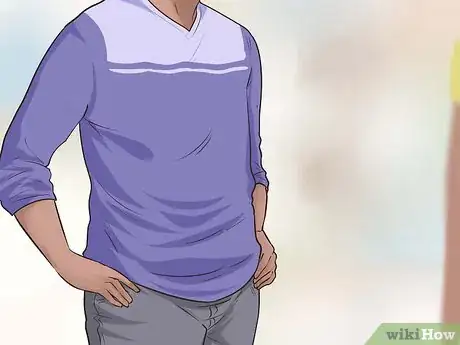
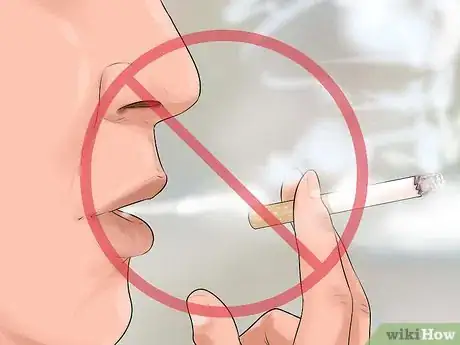
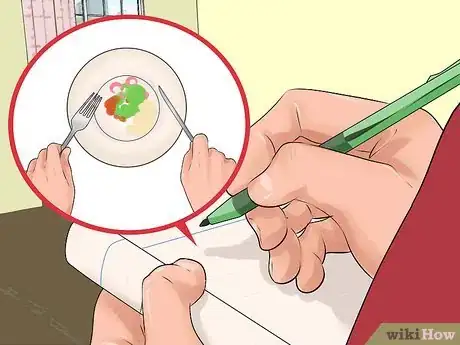
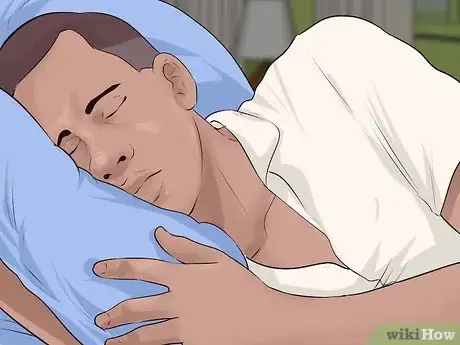
-Step-10.webp)
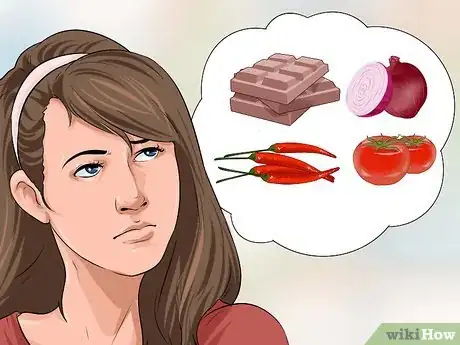
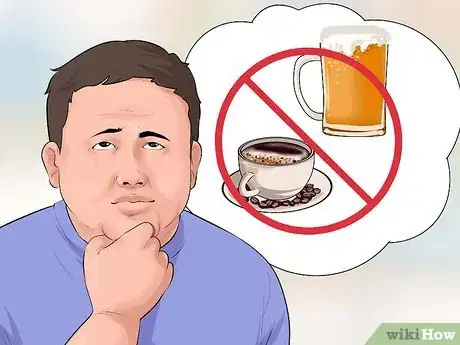
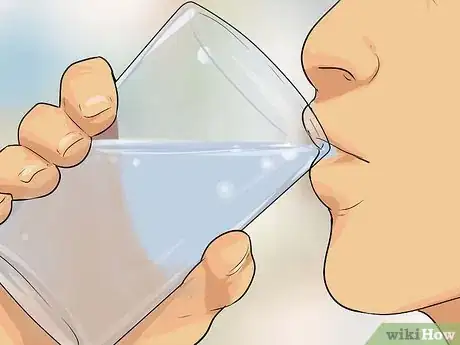
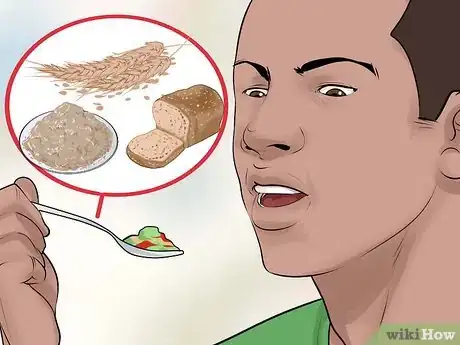
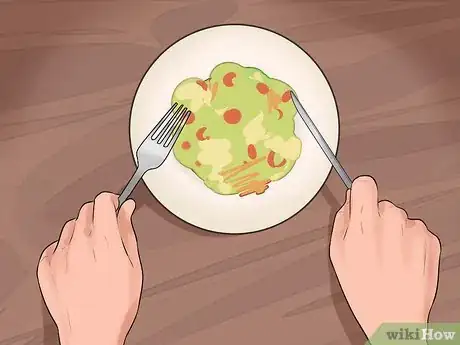
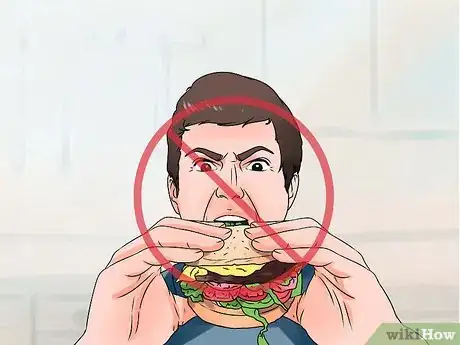
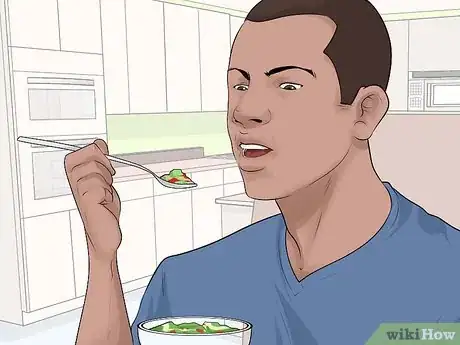
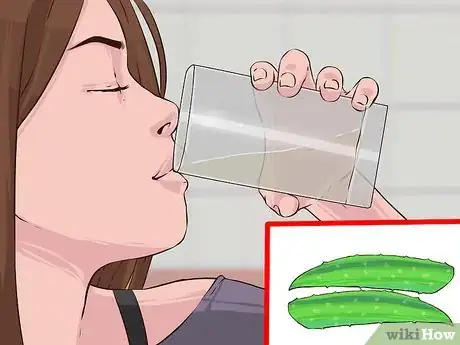
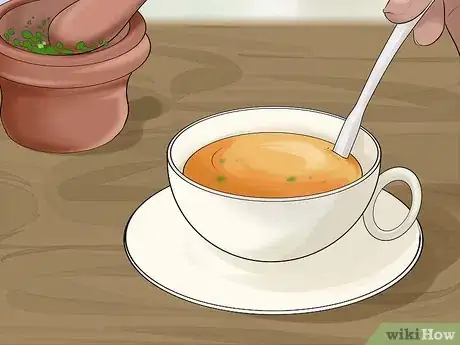
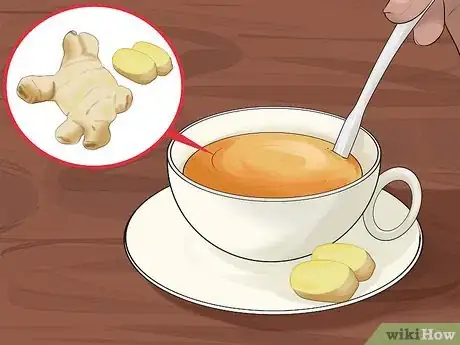
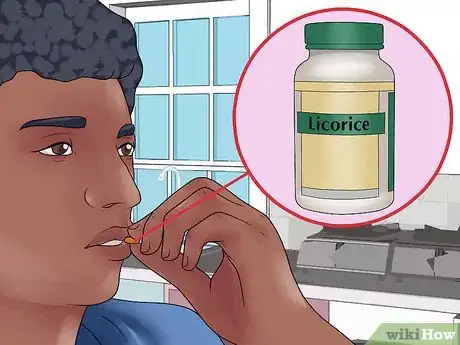
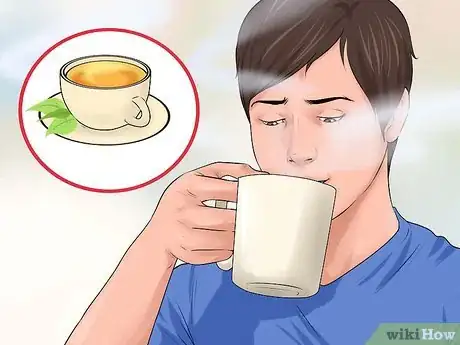
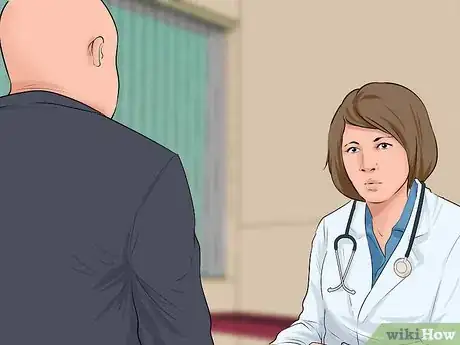
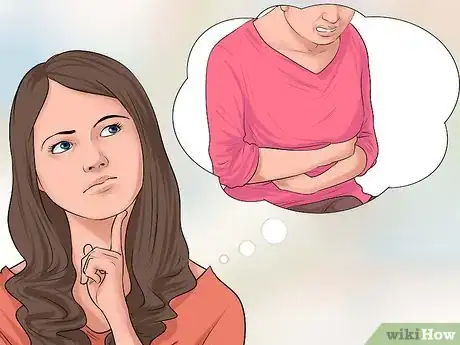
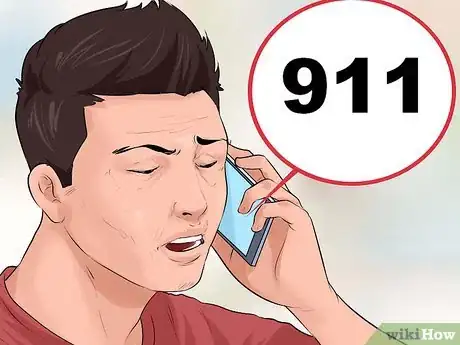
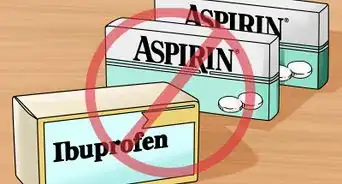
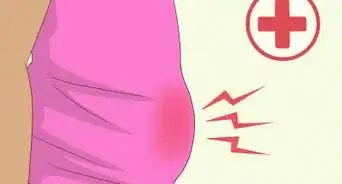
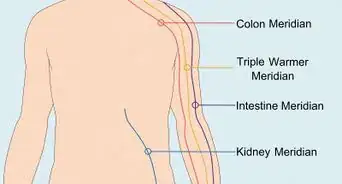


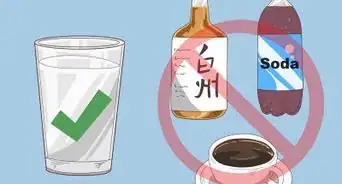


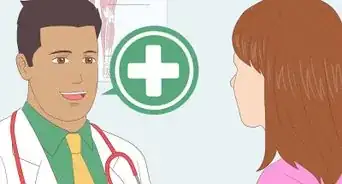

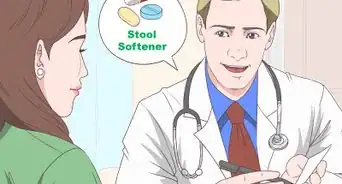
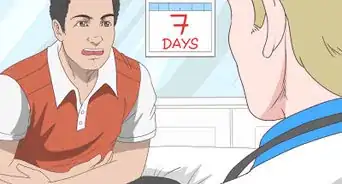
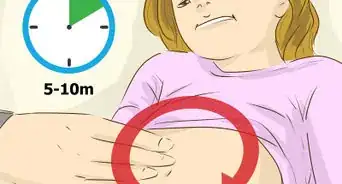
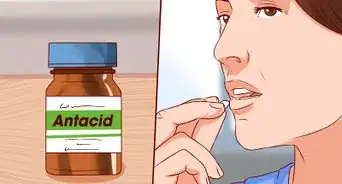






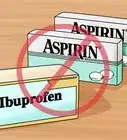

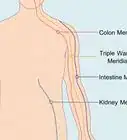




































Medical Disclaimer
The content of this article is not intended to be a substitute for professional medical advice, examination, diagnosis, or treatment. You should always contact your doctor or other qualified healthcare professional before starting, changing, or stopping any kind of health treatment.
Read More...